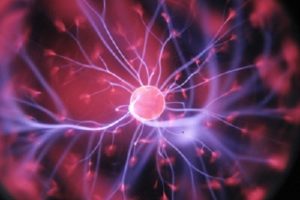Damage or pressure to the vagus nerve after a brain injury can contribute to inflammation and symptoms similar to other post brain injury conditions. Neuroinflammatory responses from PTSD, chronic pain, syncope, chronic fatigue syndrome, and IBS are a few conditions signaling a vagus nerve problem linked with a concussion may exist. Dueling conditions can cause significant suffering and confusion for patients with traumatic brain injuries. Early recognition of vagus nerve dysfunction after a traumatic brain injury could improve patients’ risk of long-term health complications.
 There are twelve vital pairs of cranial nerves. The cranial X nerve, also known as the vagus nerve, plays a significant role in regulating the parasympathetic nervous system. The vagus nerve supports the proper functioning of multiple motor and sensory systems. Starting from the brain stem, traveling past our ears and throat to the base of the neck, the nerve branches off toward the left and right side of the body. While continuing to weave through pulmonary systems of the lungs and heart, the vagus nerve passes vital organs, running through the diaphragm, ending in our abdomen. Multiple studies associate the vagus nerve with the microbiome and the communication highway between our brain and gut.
There are twelve vital pairs of cranial nerves. The cranial X nerve, also known as the vagus nerve, plays a significant role in regulating the parasympathetic nervous system. The vagus nerve supports the proper functioning of multiple motor and sensory systems. Starting from the brain stem, traveling past our ears and throat to the base of the neck, the nerve branches off toward the left and right side of the body. While continuing to weave through pulmonary systems of the lungs and heart, the vagus nerve passes vital organs, running through the diaphragm, ending in our abdomen. Multiple studies associate the vagus nerve with the microbiome and the communication highway between our brain and gut.
Though the vagus nerve contributes to our body’s responses associated with anxiety and fear, instinctively, we also rely on its ability to calm our nervous system. As part of the autonomic nervous system, the vagus nerve helps control our body’s heart rate and blood pressure. Studies have shown that the vagus nerve has a direct influence on inflammatory responses and closely aligns with the regulation of our immune system.
Many other health problems, such as viral infections, diabetes, and chronic illness, could contribute to a poorly functioning vagus nerve. Determining if an injured nerve happened at the time of a concussion can be difficult for many medical professionals to diagnose. Early symptoms such as a hoarse voice, stabbing pain near the head, difficulty swallowing, intestinal bowel disorders, muscle cramping, gastroparesis, and organs such as the liver, kidneys, or pancreas may seem to weaken. If not properly diagnosed and treated, our health can slowly worsen, leaving us vulnerable to various forms of illness and potential disease.
Several treatment options are available to help restore and strengthen the health of the vagus nerve. Traditional treatments range from vagus nerve stimulation devices approved by the FDA to physical therapy, prescriptions, and surgical intervention for severe cases. Circumstances, where minimal damage to the nerve has occurred, increases the probability of natural healing in time.
In his book, titled “Why Isn’t My Brain Working,” author and Harvard Medical School trained researcher Dr. Datis Kharrazian Ph.D., DHSc, DC, MS, MMSc, FACN, explains the overwhelming impact neuroinflammation has on the gut-brain axis. He highlights the importance of a healthy vagus nerve, especially for patients with high-risk factors such as a traumatic brain injury.
Alternative physical therapy exercises, functional neurology, and integrative functional health physicians have seen a tremendous increase in patients within the past few years who continue to suffer from post-concussion syndrome, vagus nerve dysfunction, chronic illness, autoimmune and other health conditions. Alternative health specialists who focus on whole-body healing may use therapies such as chiropractic acupressure, massage, acupuncture, and more to help activate the vagus nerve while restoring health and balance to the entire nervous system.

Leave A Comment
You must be logged in to post a comment.